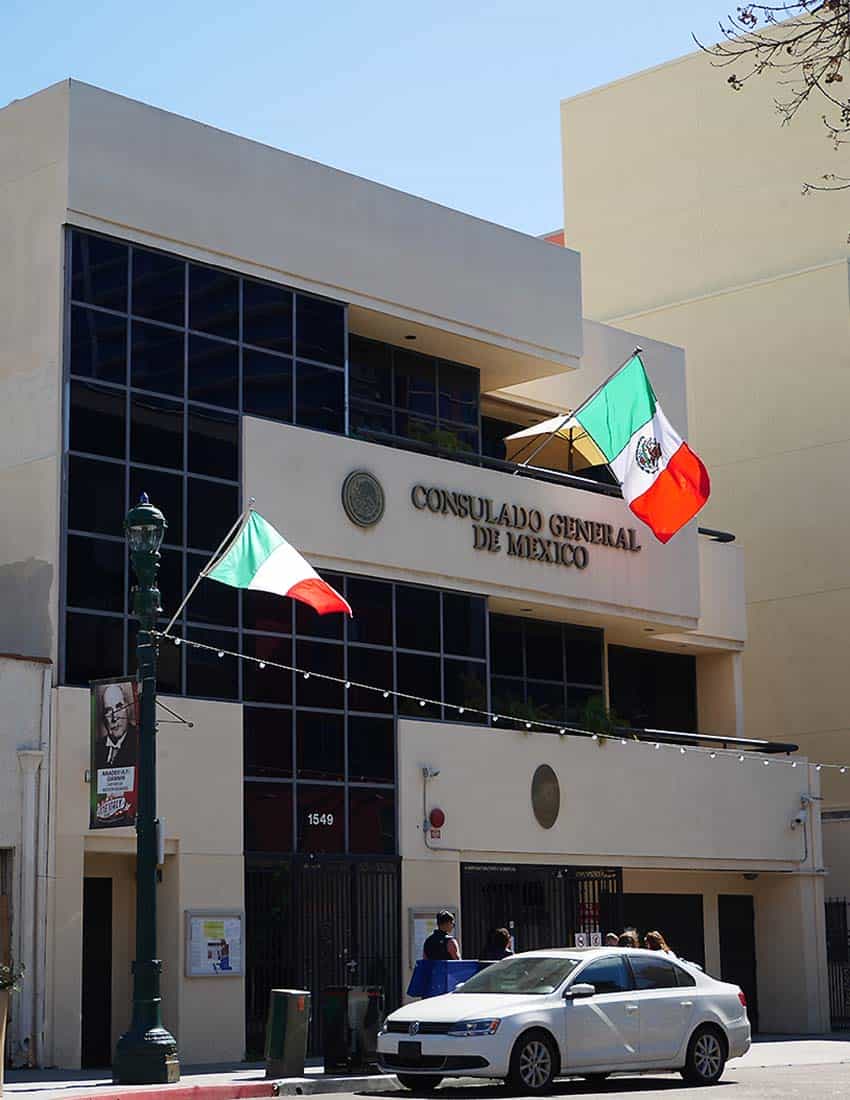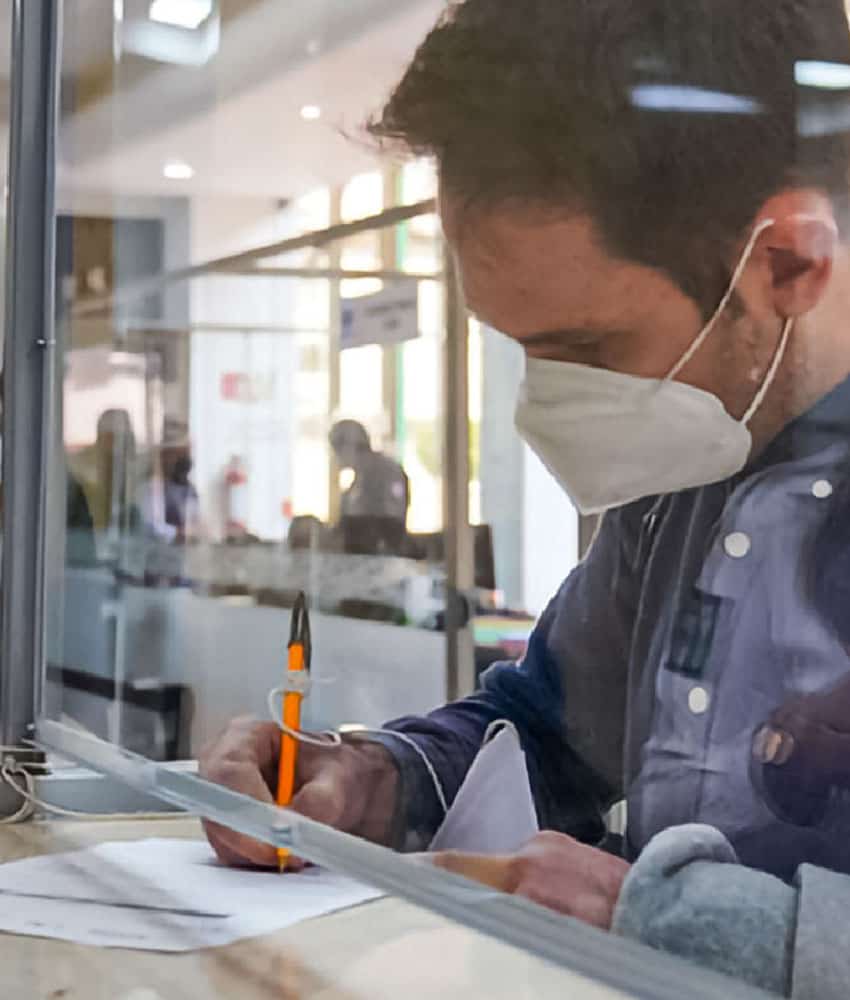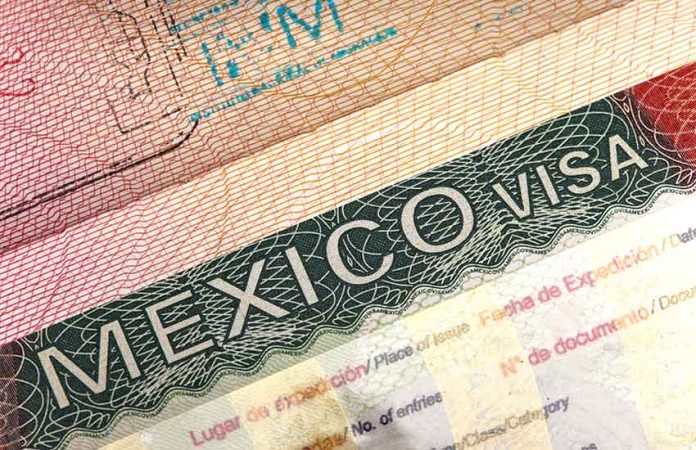As many digital nomads have discovered during the height of the COVID-19 pandemic, Mexico gives visitors from many countries a generous six-month (180-day) stay here simply upon arrival. But what if you’re interested in staying in Mexico for the long-term — say, for a few years, or maybe for the rest of your life?
If you’re looking to settle in Mexico for more than 180 days, then you need to apply for a residency visa. You apply for a residency visa not in Mexico but at a Mexican consulate in your home country.
You’ll also need to make sure you can pass Mexico’s financial solvency requirements. This article is a basic guide to what those financial solvency requirements are for the temporary and permanent residency visa.
Any financial solvency requirements will be based on a calculation using Mexico’s minimum wage, which recently went up again, by 20%, to $207.44 pesos (about US $10.80) per day. So be sure that any calculations you make reflect the new minimum daily wage.
Also, before we get into more specifics down below, another thing to bear in mind is that each consulate has different ways of converting the minimum wage into euros, U.S. dollars, Canadian dollars or whatever the currency is where you are from. How much your requirement will depend on the calculations of whichever consulate you use to apply.
So please take this guide as a general compass to kick-start your visa process, and reach out to the consulate where you’ll be applying for exact financial amounts.

Temporary or permanent residency visa: which do I need?
- A temporary residency visa can cover a period of more than 180 days to up to four years — how many years is at the discretion of Mexico’s National Migration Institute (INM) after you get your visa. Generally speaking, you are eligible to renew your temporary visa for four consecutive years with little fuss.
- A permanent residency visa is for those looking to stay in Mexico indefinitely. It is generally granted to foreigners who plan to be retirees in Mexico (you must be 65 or older for this) or else people who are dependents of a Mexican permanent resident or citizen, or who are the parent or child of a Mexican citizen.
In both cases, applicants must demonstrate financial solvency to guarantee to Mexico that they have the means of providing for themselves and any family members that are coming with them.
Financial solvency requirement for the temporary visa
If you’re applying for a temporary residency visa, to prove financial solvency, you must demonstrate one of the following:
- SALARIED INCOME: your income during the past three months must equal or be greater than 100 days of the general minimum wage (as applied in Mexico City), and you must also show proof of current, stable employment outside Mexico for at least one year.
- PASSIVE INCOME: the total amount of your investment, savings and pension income over the last 12 months must have an average monthly balance equal to 300 days of the general minimum wage applicable in Mexico City.
What if I need a temporary visa to study in Mexico?
If you’re enrolled in Mexico at a higher education institution, the financial requirements for a temporary visa are significantly lower. You must submit proof of stable employment or pension income or scholarship income over the past three months, and it must equal 60 days of the general minimum wage.
You must also submit proof of your current study program from the higher education institution.
What if I have a family?
A family moving to Mexico can apply for temporary residency, but be aware that there will be a financial solvency requirement for each adult and each minor child. Ask your consulate for specifics.
I own real estate property in Mexico. Does that qualify me for a residency visa?

Possibly. There’s no guarantee that owning a home or other real estate in Mexico will alone qualify you for residency. Consulates appear to have discretion when it comes to using this as a qualifying factor.
But if they do allow it, you’ll need to provide an original and a photocopy of the property’s Escritura Pública (the official deed to the property granted before a Notary Public in Mexico). The value of the property stated on the escritura must exceed 40,000 days of the general minimum wage for it to be considered.
Note: real estate ownership will only ever qualify you for a temporary residency visa.
Can I get a residency visa if I have investments in Mexico or conduct business in the country?
Yes, but it only qualifies you for temporary residency.
If you’re an investor in a Mexican company or conduct business in the country, the amount of the investment or value of business conducted must equal 20,000 days of the general minimum wage.
How to show proof: provide original and photocopied documents of one of the following:
- The company’s Articles of Incorporation (Acta Constitutiva), granted before a Notary Public in an Escritura Pública (a deed).
- Your título de acciones (stock certificates) from the company.
- A letter from the company’s administrative body (e.g. a board of directors) or another competent official from the Mexican company outlining the company assets owned by the applicant.
- A document proving the applicant owns company assets (this could be physical assets like machines and equipment or intellectual property like ownership of the company’s trademark).
- Documentation proving that you are conducting economic or business activities in Mexican territory. Documentation could include but isn’t limited to:
- Contracts, service orders, invoices, receipts.
- Business plans, licenses and permits
- A certificate issued by the Mexican Social Security Institute proving that the applicant employs at least three workers.
Financial solvency requirement for the permanent visa
If you’re applying for a permanent residency visa, you need to show:
- Proof of investments or bank account statements with an average monthly balance equivalent to 20,000 days of the general minimum wage during the last 12 months, or
- Proof that the applicant has a pension with a monthly income after tax greater than the equivalent of 500 days of the general minimum wage during the last six months.
Where do I need to submit the documents?

In the Mexican consulate office abroad nearest to you, except when the consulate specifies you need to send them to the Mexican Embassy in your country.
Be aware that in all cases, consulates expect that you will provide your own photocopies of the documents you are submitting. Don’t expect them to make copies for you when you get there.
Your consulate may even ask to keep originals. If you don’t want to give up your original documents, ask ahead if a certified copy granted before a Notary Public (copia certificada ante Notario Público) can be accepted as an original. A certified copy is considered to be equal to an original unless in specific cases mandated by the authorities. So make sure to ask.
How long will the consulate take to resolve my application?
According to Mexican officials, it will take up to 10 working days in any of the aforementioned cases.
After obtaining my residency visa, are there any other required steps to finalize the residency process?
Yes. If the visa is granted, you must obtain your residency card in Mexico. The deadline to apply for the residency card is 30 calendar days after entering Mexican territory. This can be done at any INM office in Mexico.

Note that this process CAN’T be done at Mexican consulates or embassies. It must be done at an INM office. The consulate only gives you general approval for a visa. INM will be the final arbiter of for how long your first temporary visa will be valid — up to a maximum of four years.
Many foreigners from countries that aren’t required to obtain a tourist visa to enter Mexico (e.g. U.S., Canada, Schengen Area countries; see this link for the full list of countries) are granted at least a year and are eligible to renew upon their first visa’s expiration.
Must I keep the government updated of any change in my status, address or any other?
Yes. You must notify the immigration authority of any change in your marital status, nationality, the address where you live or your place of work within 90 days after said change occurs.
If you’re new to Mexico, you might also be interested in our guide to understanding the new Social Security Law for Domestic Workers.
With information from Lineamientos generales para la expedición de visas.
